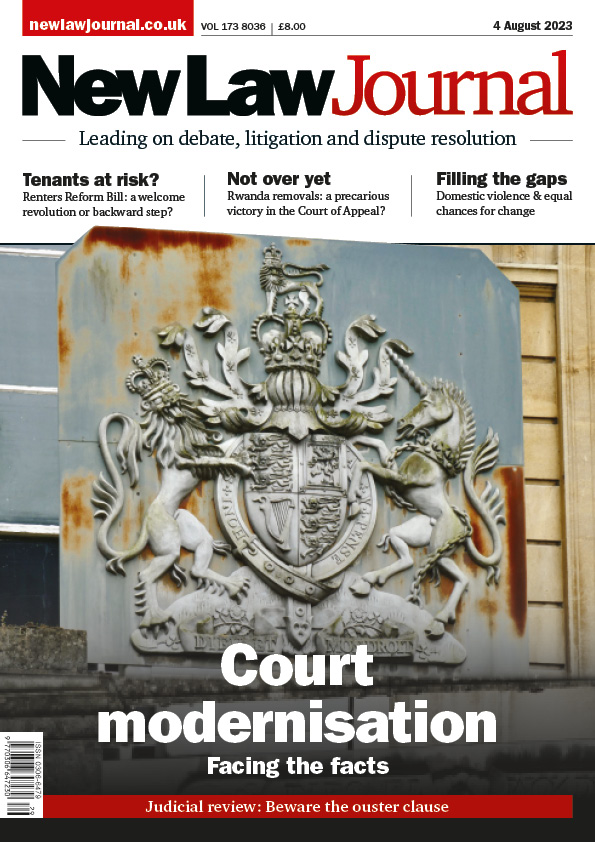THIS ISSUE

The Law Society has called on firms to pay nearly 10% more to trainees and those on qualifying work experience (QWE).
Some 33 serious criminal cases have been filmed and broadcast since camera crews were first allowed into the crown courts one year ago.
A revised guide to judicial conduct has been published by the Courts and Tribunals Judiciary.
The Legal Services Board (LSB) has this week published research based on 45 people who made a complaint about legal services in the past two years, or had cause to complain but didn’t.
MOVERS & SHAKERS

NLJ Career Profile: Bridget Tatham, Forum of Insurance Lawyers
Bridget Tatham, partner at Browne Jacobson and 2026 president of the Forum of Insurance Lawyers, highlights the importance of hard work, ambition and seizing opportunities

Gibson Dunn—London partner promotions
Firm grows international bench with expanded UK partner class

Shakespeare Martineau—six appointments
Firm makes major statement in the capital with strategic growth at The Shard
NEWS
One in five in-house lawyers suffer ‘high’ or ‘severe’ work-related stress, according to a report by global legal body, the Association of Corporate Counsel (ACC)
The Legal Ombudsman’s (LeO’s) plea for a budget increase has been rejected by the Law Society and accepted only ‘with reluctance’ by conveyancers
Overcrowded prisons, mental health hospitals and immigration centres are failing to meet international and domestic human rights standards, the National Preventive Mechanism (NPM) has warned
Two speedier and more streamlined qualification routes have been launched for probate and conveyancing professionals
Workplace stress was a contributing factor in almost one in eight cases before the employment tribunal last year, indicating its endemic grip on the UK workplace






